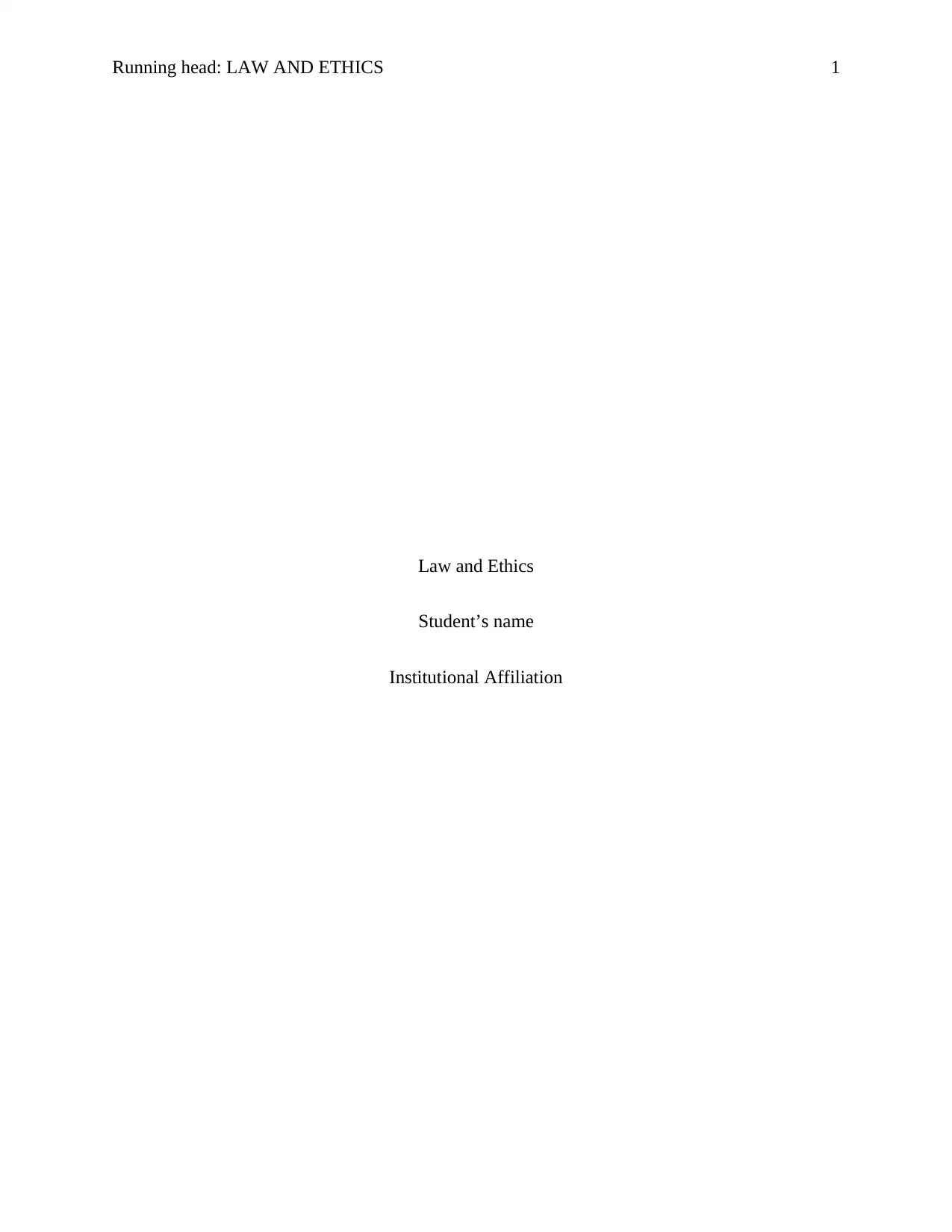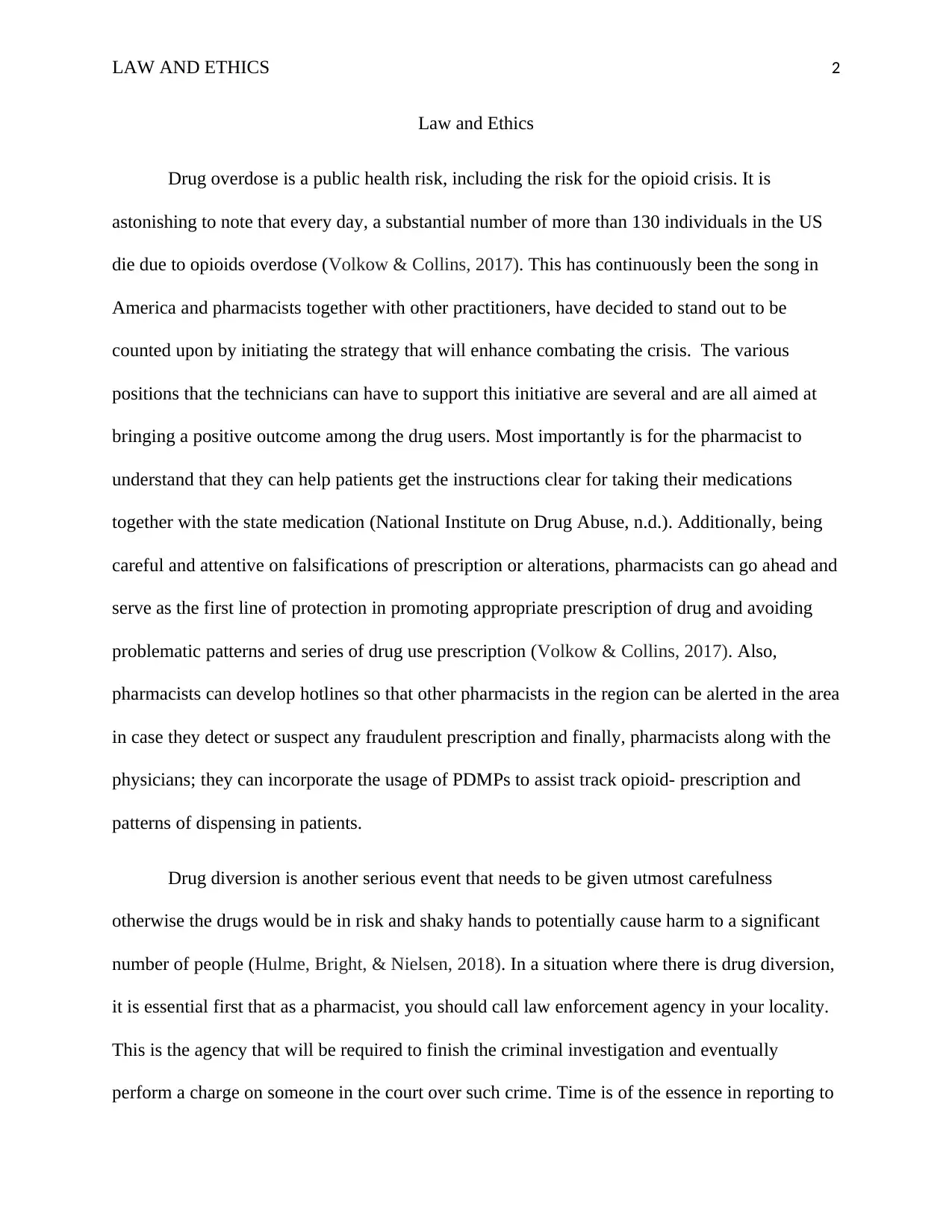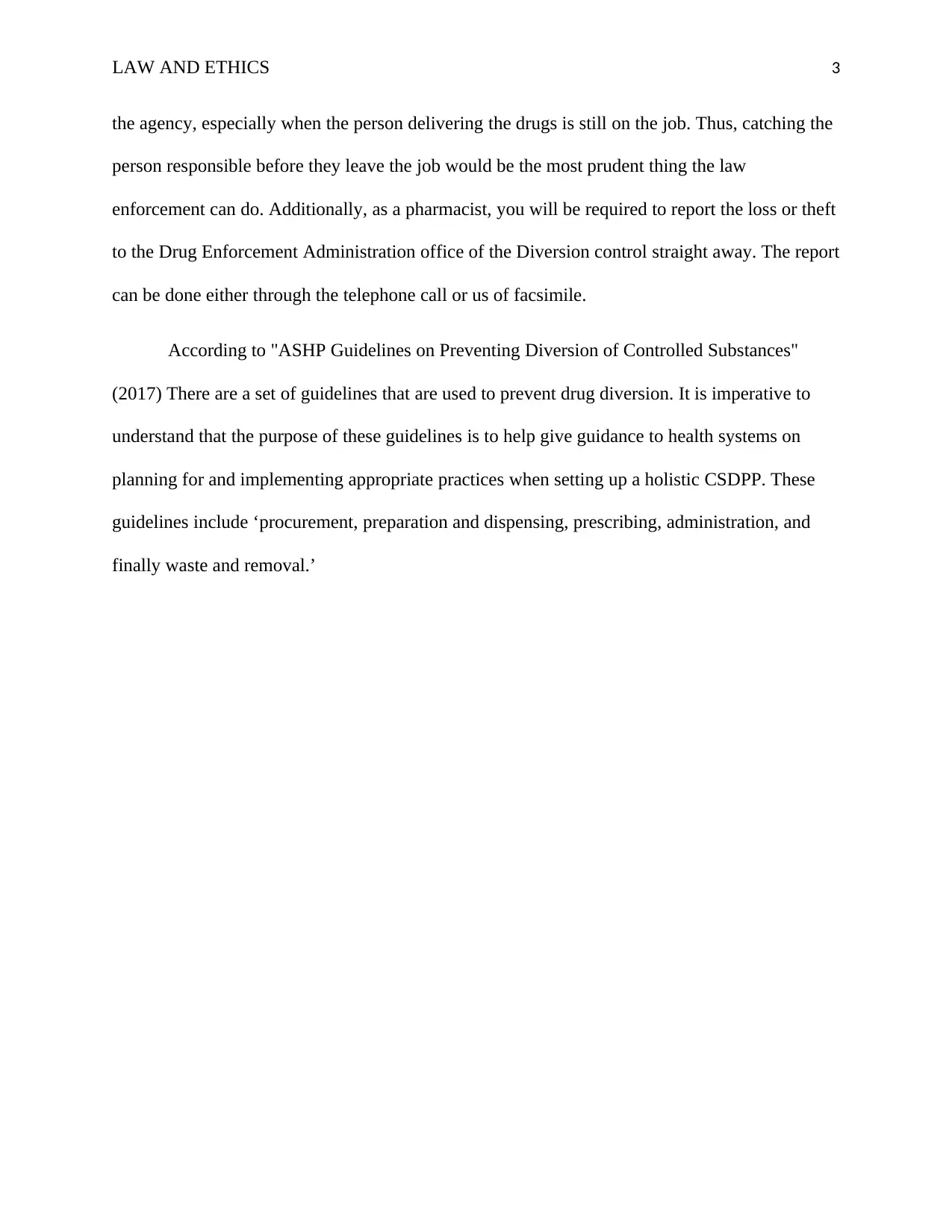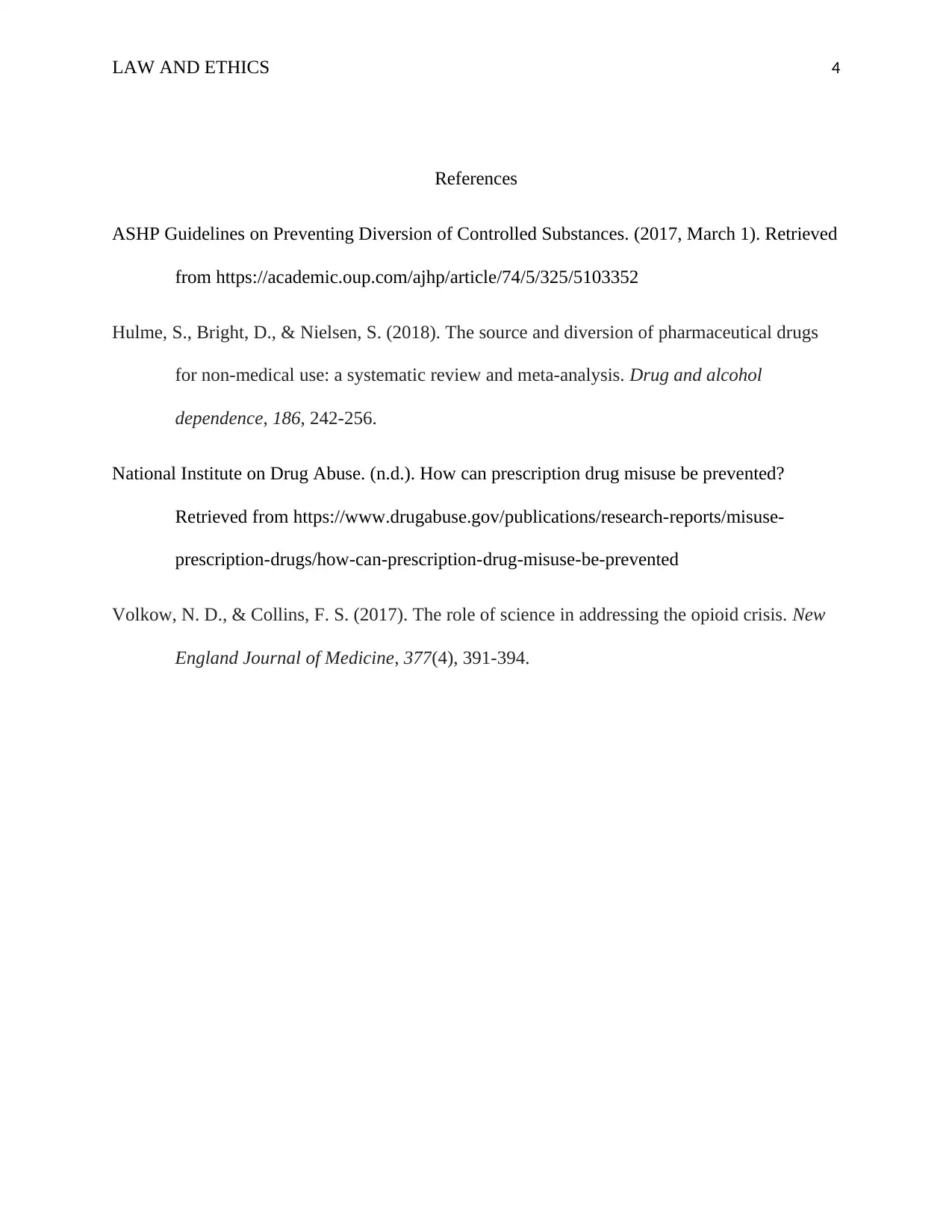Law and Ethics: Pharmacists' Roles in Opioid Crisis and Drug Diversion
VerifiedAdded on 2022/11/16
|4
|672
|191
Essay
AI Summary
This essay delves into the critical intersection of law and ethics within the context of the opioid crisis and drug diversion. It highlights the significant role pharmacists play in combating this public health issue. The essay emphasizes various strategies pharmacists can employ, including providing clear medication instructions, being vigilant against prescription falsification, developing hotlines for fraud detection, and utilizing Prescription Drug Monitoring Programs (PDMPs) to track opioid prescriptions. Furthermore, the essay outlines the necessary steps pharmacists must take when drug diversion occurs, such as contacting law enforcement and reporting to the Drug Enforcement Administration. It also references the 'ASHP Guidelines on Preventing Diversion of Controlled Substances' to provide a comprehensive overview of best practices in this area.
1 out of 4









![[object Object]](/_next/static/media/star-bottom.7253800d.svg)